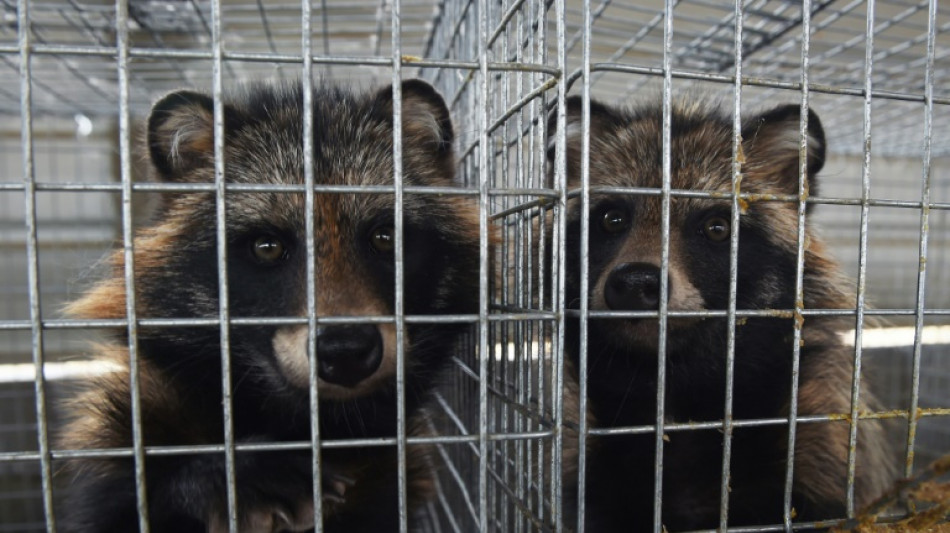
-
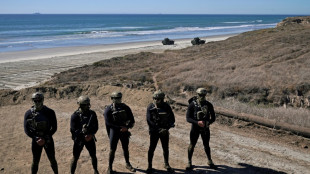 US Navy veterans battle PTSD with psychedelics
US Navy veterans battle PTSD with psychedelics
-
'Unheard of': Dodgers in awe of iron man Yamamoto

-
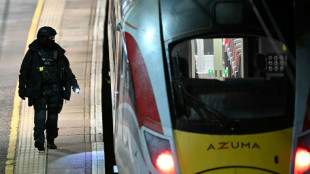 UK police probe mass train stabbing that wounded 10
UK police probe mass train stabbing that wounded 10
-
'It's hard' - Jays manager Schneider rues missed chances in World Series defeat

-
 Women's cricket set for new champion as India, South Africa clash
Women's cricket set for new champion as India, South Africa clash
-
Messi scores but Miami lose as Nashville level MLS Cup playoff series

-
 Dodgers clinch back-to-back World Series as Blue Jays downed in thriller
Dodgers clinch back-to-back World Series as Blue Jays downed in thriller
-
Vietnam flood death toll rises to 35: disaster agency
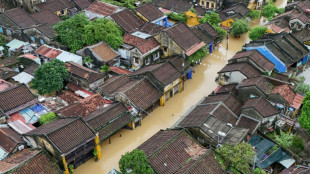
-
 History-making Japan golf twins push each other to greater heights
History-making Japan golf twins push each other to greater heights
-
Death becomes a growing business in ageing, lonely South Korea
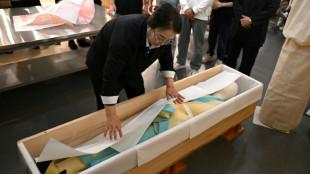
-
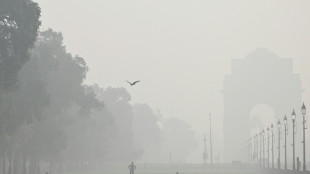 India's cloud seeding trials 'costly spectacle'
India's cloud seeding trials 'costly spectacle'
-
Chiba wins women's title, Malinin leads at Skate Canada

-
 Siakam sparks injury-hit Pacers to season's first NBA win
Siakam sparks injury-hit Pacers to season's first NBA win
-
Denmark's fabled restaurant noma sells products to amateur cooks
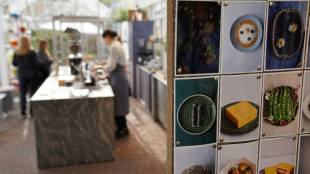
-
 UK train stabbing wounds 10, two suspects arrested
UK train stabbing wounds 10, two suspects arrested
-
Nashville top Messi's Miami 2-1 to level MLS Cup playoff series

-
 Fergie, her daughters and the corgis hit by Andrew crisis
Fergie, her daughters and the corgis hit by Andrew crisis
-
'I can't eat': Millions risk losing food aid during US shutdown
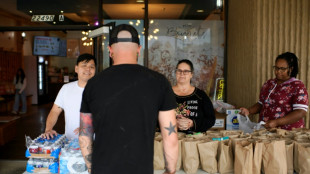
-
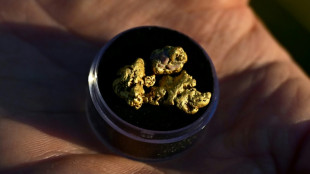 High price of gold inspires new rush in California
High price of gold inspires new rush in California
-
'Swing for the fences': Carney promises bold budget as US threat grows
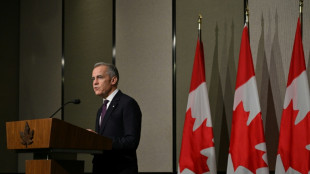
-
 UK police arrest two after 'multiple people' stabbed on train
UK police arrest two after 'multiple people' stabbed on train
-
NBA Hawks lose guard Young for four weeks with knee sprain

-
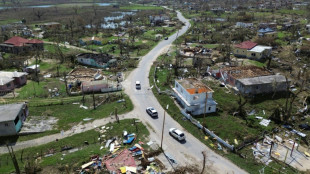 50 dead as Caribbean digs out from Hurricane Melissa
50 dead as Caribbean digs out from Hurricane Melissa
-
Forever Young gives Japan first Breeders' Cup Classic triumph
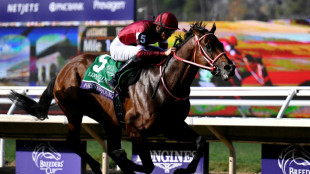
-
 Mbappe's Real Madrid extend Liga lead, Villarreal move second
Mbappe's Real Madrid extend Liga lead, Villarreal move second
-
Salah savours 'great feeling' after 250th Liverpool goal

-
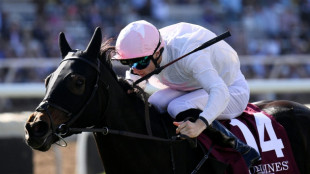 Ethical Diamond surges to upset win in $5 million Breeders' Cup Turf
Ethical Diamond surges to upset win in $5 million Breeders' Cup Turf
-
Kinghorn kicks Toulouse to Top 14 summit

-
 Mbappe extends Real Madrid's Liga lead in Valencia rout
Mbappe extends Real Madrid's Liga lead in Valencia rout
-
All Blacks sink 14-man Ireland 26-13 in Chicago Test

-
 World champ Malinin takes lead at Skate Canada
World champ Malinin takes lead at Skate Canada
-
Liverpool snap losing streak as Salah hits 250 goals in Villa win

-
 Salah's 250th Liverpool goal sinks Villa as Arsenal cruise at Burnley
Salah's 250th Liverpool goal sinks Villa as Arsenal cruise at Burnley
-
Morant suspended by Grizzlies after rebuking coaching staff

-
 Spalletti begins Juve tenure with win at Cremonese but Napoli held
Spalletti begins Juve tenure with win at Cremonese but Napoli held
-
Frank refuses to condemn Van de Ven, Spence for snub in Spurs defeat

-
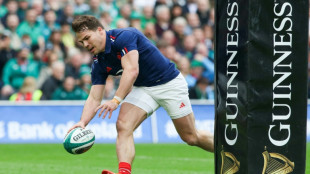 France superstar Dupont extends Toulouse deal
France superstar Dupont extends Toulouse deal
-
Egypt officially opens grand museum near pyramids

-
 French fraud watchdog reports Shein for 'childlike' sex dolls
French fraud watchdog reports Shein for 'childlike' sex dolls
-
Scotland thrash USA before All Blacks' clash

-
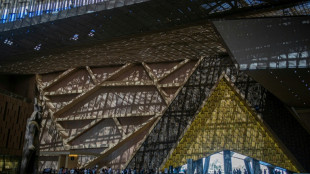 Five things to know about the Grand Egyptian Museum
Five things to know about the Grand Egyptian Museum
-
Bayern rest stars but ease past Leverkusen before PSG clash

-
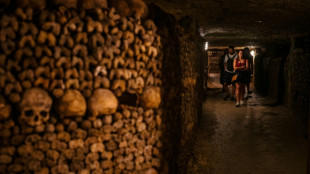 Dead quiet: Paris Catacombs close for renovations
Dead quiet: Paris Catacombs close for renovations
-
Families separated, children killed as survivors flee Sudan's 'apocalyptic' El-Fasher
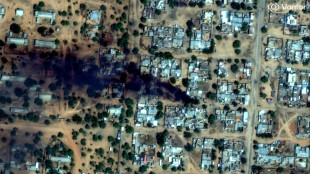
-
 Napoli held by Como as Spalletti begins Juve adventure
Napoli held by Como as Spalletti begins Juve adventure
-
Southampton boss Still vows to fight on as pressure mounts

-
 Borthwick hails 'ball of energy' Pollock as England down Australia
Borthwick hails 'ball of energy' Pollock as England down Australia
-
Egypt opens grand museum in lavish, pharaonic ceremony

-
 Joao Pedro strikes at last as Chelsea edge past Spurs
Joao Pedro strikes at last as Chelsea edge past Spurs
-
Ohtani to open for Dodgers in World Series deciding game seven


New study reinforces theory Covid emerged at Chinese market
A study on the origin of Covid-19 provided new evidence on Thursday supporting the theory that humans first caught the virus from infected animals at a Chinese market in late 2019.
Nearly five years after Covid first emerged, the international community has not been able to determine with certainty exactly where the virus came from.
The first cases were detected in the Chinese city of Wuhan in late 2019, but there have been bitter disputes between proponents of the two main theories.
One is that the virus leaked from a Wuhan lab which studied related viruses, while the other is that people caught Covid from an infected wild animal being sold at a local market.
The scientific community has favoured the latter theory, but the controversy has rumbled on.
The study published in the Cell journal is based on more than 800 samples collected at Wuhan's Huanan Seafood Market, where wild mammals were also believed to have been for sale.
The samples were collected in January 2020 after the market was shuttered, and were not taken directly from animals or people but from the surfaces of stalls selling wildlife, as well as from drains.
From this type of data, which was shared by the Chinese authorities, "we cannot say with certainty whether the animals (at the market) were infected or not," study co-author Florence Debarre told AFP.
However, "our study confirms that there were wild animals at this market at the end of 2019, notably belonging to species such as raccoon dogs and civets," said the evolutionary biologist at France's CNRS research agency.
"And these animals were in the southwest corner of the market, which also happens to be an area where a lot of SARS-CoV-2 virus, which causes Covid-19, was detected."
These small mammals can catch similar viruses to humans, which has made them suspects for serving as an intermediate host between humans and bats, in which SARS-CoV-2 is suspected to have originated.
The presence of these animals at the Huanan market had previously been disputed, despite some photographic evidence and a 2021 study.
- 'Very strong evidence' -
Numerous parts of one stall tested positive for the Covid virus, including "animal carts, a cage, a garbage cart, and a hair/feather removal machine," the study said.
"There was more DNA from mammalian wildlife species in these samples than human DNA," it added.
Mammal DNA was found in the Covid-positive samples from this stall, including from palm civets, bamboo rats and raccoon dogs.
"These data indicate either that the animals present at this stall shed the SARS-CoV-2 detected on the animal equipment or that early unreported human case(s) of Covid-19 shed virus in the exact same location as the detected animals," the study said.
The research also confirms that the "most recent common ancestor" of the Covid virus strain found in the market samples was "genetically identical" to the original pandemic strain.
"This means that the early diversity of the virus is found at the market -- as would be expected if this is the site where it emerged," Debarre explained.
James Wood, an infectious disease epidemiologist at Cambridge University not involved in the research, said the study "provides very strong evidence for wildlife stalls in the Huanan Seafood Market in Wuhan being a hotspot for the emergence of the Covid-19 pandemic."
The research was important because "little or nothing has been done to limit either the live trade in wildlife nor the biodiversity loss or land use changes that are the actual likely drivers of past and future pandemic emergence," he said.
"These aspects are also not included in the draft pandemic treaty" currently being negotiated by countries, he added.
T.Germann--VB




